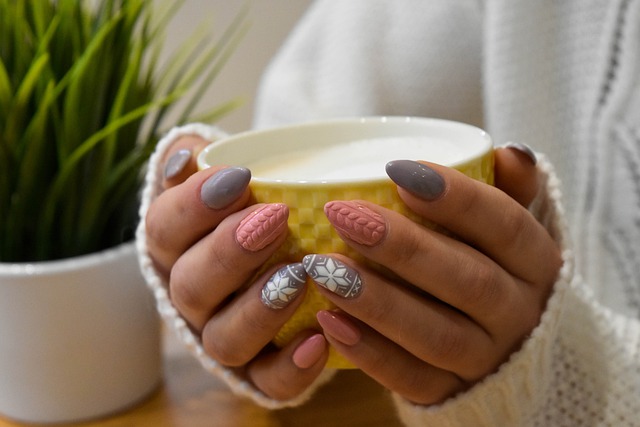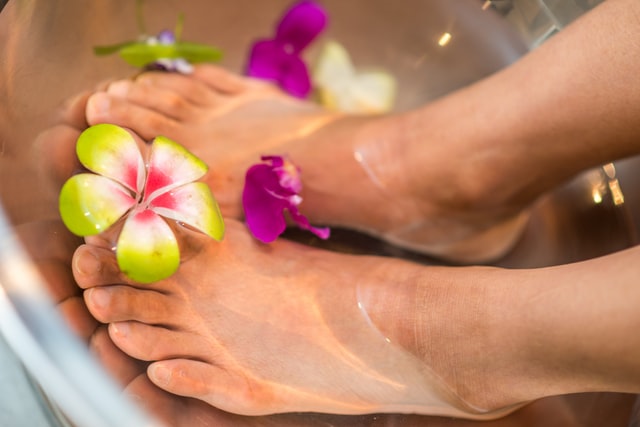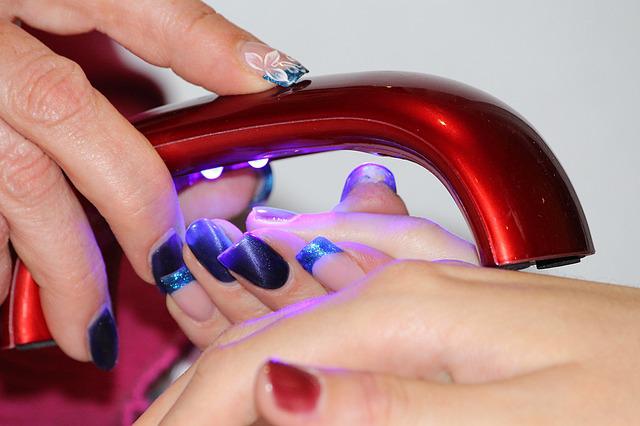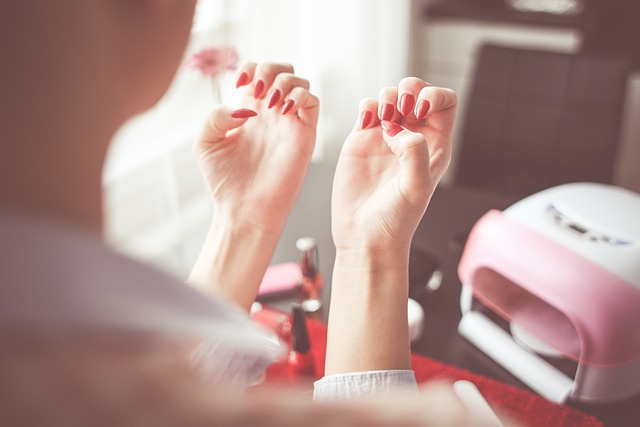You probably don't give much thought to your nails until they become a problem. But taking proactive steps to care for your nails can make all the difference in preventing fungal infections. By washing your hands thoroughly, especially around your nails, and trimming them straight across, you can reduce the risk of breaks and splits that can invite fungus to take hold. But that's just the beginning – there are several other simple habits you can develop to keep your nails healthy and fungus-free. Let's take a closer look at what else you can do.
Wash Hands Before Touching Nails
Before you start any nail care routine, wash your hands thoroughly with soap and water to remove dirt and bacteria that could infect your nails. You want to make sure your hands are clean to prevent the spread of infection. As you wash, pay special attention to the areas around your nails, making sure to scrub them gently. This simple step can help prevent fungal infections and other nail problems.
When washing your hands, you're not just cleaning your skin, you're also protecting your nails. You're removing dirt and oils that can accumulate and cause problems. By washing your hands regularly, you're creating a clean environment for your nails to grow. This is especially important if you're prone to nail biting or picking, as these habits can introduce bacteria into your nails. By washing your hands before touching your nails, you're taking a proactive step towards healthy nail care. Make it a habit to wash your hands before any nail care routine, and you'll be on your way to healthier, happier nails.
Dry Nails After Washing Hands
You should gently dry your nails after washing your hands to prevent bacterial or fungal growth that thrives in moist environments. This simple step is often overlooked, but it's vital in maintaining healthy nails. When you don't dry your nails properly, the excess moisture can seep underneath your nail bed, creating an ideal breeding ground for fungus and bacteria.
To dry your nails effectively, use a clean towel to gently pat them dry, paying extra attention to the areas around your cuticles. You can also use a nail dryer or a hair dryer on a low setting to dry your nails more thoroughly. Avoid rubbing your nails vigorously with the towel, as this can cause irritation and even lead to nail breakage.
Trim Nails Straight Across
Trimming your nails straight across is crucial for preventing breaks, splits, and ingrown nails, as it helps distribute the nail's growth evenly. When you trim your nails at an angle, you're creating a weak point that can lead to breaks or splits. To trim your nails straight across, place the clippers directly across the nail, parallel to the floor, and snip. Don't cut too short, as this can also lead to ingrown nails. Leave about 1/4 inch of nail at the end.
Trimming your nails straight across also helps prevent fungal infections. When your nails are cut at an angle, moisture can accumulate in the corners, creating a perfect environment for fungus to grow. By cutting your nails straight across, you're reducing the risk of moisture accumulation and subsequent fungal infections. Additionally, straight-cut nails are less likely to dig into your skin, reducing the risk of nail bed irritation and infection. By making this simple change to your nail care routine, you can substantially reduce the risk of nail-related problems.
Avoid Sharing Nail Care Tools
While adopting good trimming habits can substantially reduce the risk of nail problems, using contaminated nail care tools can quickly undo all your efforts – that's why it's so important not to share them. Sharing nail clippers, nail files, or other nail care tools can spread infections, including fungal infections like onychomycosis. When you share these tools, you're introducing new bacteria and fungi into your nail environment, where they can take hold and cause problems.
To prevent this, you should get your own set of nail care tools and keep them clean and disinfected regularly. After each use, wash your tools with soap and water, and sanitize them with a disinfectant solution. Store your tools in a dry place, away from other family members' tools. Remember, it's always better to be safe than sorry. By keeping your own set of clean and sanitized nail care tools, you're taking a vital step in protecting your nails and preventing fungal infections. It's a simple habit to get into, and your nails will thank you!
Wear Gloves When Washing Dishes
Your hands' constant exposure to hot water and harsh detergents when washing dishes can weaken your nails, making them more prone to breakage and brittleness. You may think it's just a part of washing dishes, but you don't have to put up with weakened nails. That's why you need to start wearing gloves when you wash dishes – your nails will thank you. Doing so protects them from all that harsh moisture, while also minimizing risk of an injury like ripping off the tip of the nail and providing openings through cuts from which germs might flow. To minimize chances further consider utilizing stronger washing agents and gentleness instead during those duties but doing an important hand-specific trick really could protect every inch – your future safe!
Select gloves you wear specifically thinking they've great hold capabilities; a secure fast seal helps your future success keeping moisture inside without leaving chance to leakage giving good seal when securely positioned during an operation washing clothes for best defense system around making more safety all right even further along if some tips work!
Use Antifungal Nail Products
Fungal infections can be a major problem for nail health, but using antifungal nail products can help prevent these issues and keep your nails strong and healthy. You'll find a wide range of products on the market that are specifically designed to target fungus and promote healthy nail growth. When shopping for antifungal nail products, you should look for ingredients like tea tree oil, which is known for its antifungal properties.
Incorporating antifungal products into your daily nail care routine is easy. You can start by using an antifungal nail oil or cream on your nails and cuticles after washing your hands or taking a shower. You can also use antifungal nail polish, which is designed to help prevent fungal infections while keeping your nails looking their best. By using these products regularly, you'll be taking a proactive approach to preventing fungal infections and keeping your nails healthy and strong. Remember to always read the labels and follow the instructions carefully to guarantee you're getting the most out of these products.
Disinfect Nail Care Tools Regularly
To prevent the spread of infections, you should regularly disinfect the nail care tools you use at home or in a salon. This is especially vital when you're dealing with fungal infections, which can easily spread from one nail to another. You don't want to be the one responsible for infecting others or reinfecting yourself.
When disinfecting your nail care tools, you should focus on the tools that come into direct contact with your nails, such as nail clippers, cuticle pushers, and nail files. Dip these tools in a disinfectant solution for a few minutes, and then wipe them clean with a lint-free cloth or let them air dry. Make sure to follow the instructions on the disinfectant solution you're using, as some may require dilution or have specific contact times. Regular disinfection will help prevent the spread of fungal infections and keep your nails healthy. You should also consider replacing your nail care tools every 6-12 months to prevent the buildup of bacteria and fungi. By doing so, you'll be protecting yourself and others from infection. Additionally, it’s important to invest in the best nail cutting tools to ensure precise and safe grooming. High-quality tools are often made of durable materials like stainless steel, which are easier to disinfect and less likely to harbor harmful bacteria. Proper care and maintenance of these tools not only extend their lifespan but also promote better nail hygiene, keeping your hands and feet in top condition.
Change Socks Frequently Daily
Changing socks at least once a day can substantially reduce the risk of developing nail infections, particularly those caused by fungi that thrive in warm, moist environments. You don't want to provide a perfect setting for these microorganisms to grow, so it's vital to maintain good foot hygiene. When you wear the same socks throughout the day, you're creating an ideal breeding ground for bacteria and fungi.
Avoid Walking Barefoot Outdoors
Besides keeping your feet clean and dry by changing your socks regularly, you also want to protect them from external factors that can lead to nail infections, which is why you should avoid walking barefoot outdoors. When you walk barefoot, you're exposing your feet to a multitude of fungi, bacteria, and other microorganisms that can easily infect your nails. These microorganisms can be found in soil, water, and other organic matter, and they can enter your body through even the tiniest cuts or cracks in your skin.
Keep Feet Clean and Dry
Keeping your feet clean and dry is essential in preventing fungal and bacterial growth that can lead to nail infections. You should wash your feet daily with soap and water, paying special attention to the areas between your toes. After washing, dry your feet thoroughly, especially between the toes, where moisture can easily accumulate. You can use a towel or a hair dryer on a low setting to dry your feet.
You should also trim your toenails straight across and avoid sharing personal care items, such as towels or nail clippers. This will prevent the spread of fungal and bacterial infections. Additionally, you should change your socks regularly, especially after engaging in physical activities that cause your feet to sweat. By keeping your feet clean and dry, you can reduce the risk of developing nail infections and maintain healthy, beautiful nails. Make foot hygiene a part of your daily routine.
At a Glance
You've got the basics down to prevent fungal infections. Remember to wash your hands before touching your nails, dry them thoroughly, and trim them straight across. By following these simple tips, you'll substantially reduce your risk of getting a fungal infection. Make these habits a part of your daily routine and you'll be on your way to healthy, fungus-free nails. Stay vigilant and take care of your nails to avoid any future problems.






